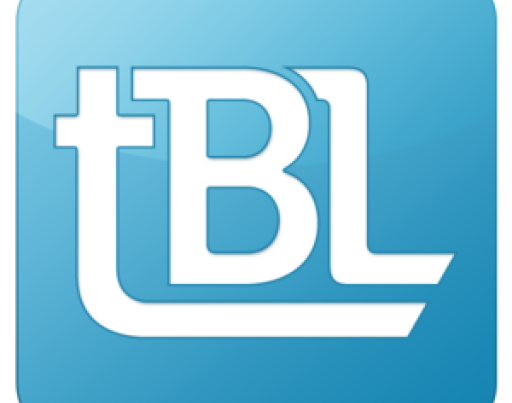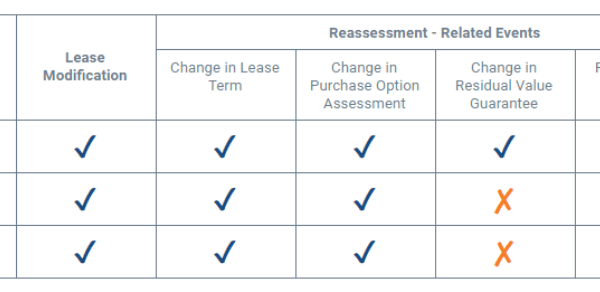Lease management, sometimes known as lease tracking or lease administration, is necessary because each contract has its own nuances and complexities. Managing leases involves routing a contract to relevant departments, creating a lease abstract, preparing the asset for use, and, finally, acquiring it. Someone has to be responsible for executing on the terms of the lease agreement and serve as a point person for internal stakeholders. Lease management software automates many of those tasks and makes the information you need most more accessible.
How to know if you need software for lease tracking
If you have more than ten leases, then you probably need lease management software. Day-to-day lease administration tasks can involve a good deal of manual effort if you don’t use software.


In the day in the life of a lease manager, all of these scenarios can happen: the legal department requests copies of contracts; field managers ask for details on possession dates and points of contact; and the finance department needs reports to assist with forecasting next year’s budget. If you maintain your documents in files on a local server, responding to those requests can easily take up a significant portion of your time. Completing these tasks for just one lease can be time-consuming enough. That’s why companies with more than ten leases should consider a software to save time and reduce errors.
Many lease managers use Excel to keep up with the most important data related to their leases. Excel may save time, but only so much. Plus, it’s error-prone. You have to create the spreadsheet and determine what data you want to capture. Once you have that in place, you still need a separate process for storing lease documents. When you need to create reports on leases, you’ll need to pull the appropriate information from Excel. And you have to hope that no one has entered erroneous data in your spreadsheet and your formulas are accurate. Organizations that implement lease management software are able to consolidate those functions into one system and eliminate the human errors that come with Excel.
Which industries typically need lease software?
Leasing is a common practice across industries, but there are certain sectors that practice it more heavily than others. Retail, oil and gas, healthcare, manufacturing, and logistics and transportation companies all typically lease a high volume of assets. The terms and day-to-day requirements of managing leases for aircraft, land, medical equipment, buildings, or a fleet of vehicles can be complex. And businesses that lease specialized equipment or assets that are spread out geographically are particularly in need of systems that streamline lease tracking.
Check out our lease accounting transition guides here.
Choosing the best lease management software
There’s no shortage of lease management systems on the market. Some are tailored specifically for real estate, equipment, or vehicle leases. You’ll even find free and open source lease management software. Look for the following features to make sure you choose a system that truly saves you time and protects the security of your lease data.
Prevent mistakes with critical date alerts
One of the most challenging aspects of lease administration is keeping up with important dates: possession, commencement, terminations, renewals, etc. Missing an important date can cause interruptions in business and lead to overpayments. Without alerts for important dates, it’s possible to forget that a lease contains rent abatement, fail to prepare for negotiations before renewal, or miss out on lease stipulations that can save you money. And in the event any of those scenarios come to pass, it’s unlikely that the lessor will alert you to your mistake. A lease management system captures important dates and provides you with automated alerts before those dates arrive to save time, money, and stress.
Track any asset
Even if your business typically leases one type of asset, it’s a good idea to get an asset-agnostic system that can grow with you as your needs change. Investing in equipment lease management software may seem like a good idea when you only lease heavy machinery, for example. But what happens if you decide to change your business model and lease field offices to sell your products? Do you purchase a property lease management software and track your leases separately? Or do you switch to a system that can manage both? Starting with an asset-agnostic system prevents you from having to face that decision.
![]()
![]()
Centralize lease documents
The more leases you have, the harder it is to keep up with all the contracts, addendums, reports, and memos for each one. That’s why having a lease software that enables you to upload and store your lease information, as well as perform a quick search to find the information you need about a certain lease, is key. The ideal software will also allow you to set controls over access to lease documents. If you have colleagues who need to view documents but you don’t want them to be able to make changes, you can give them read-only access. Your lease management software should be a single source of truth for all documents, and this functionality helps prevent errors.
Improve your reporting
Using software built specifically for leases gives you access to reporting features that make it easy to retrieve lease data. The best lease management software will allow you to generate reports based on square footage, geography, type of lease, or any attribute you choose. So when the finance team asks for data to help them plan next year’s budget, or when the vice president of operations wants to get an idea of how many assets you lease in a particular state, you can quickly respond and feel confident in the accuracy of your reporting.
Why lease tracking is more important than ever
Over the past couple of years, accounting departments have been busy adopting new standards for the way they report on leases. Because of this new guidance, companies and investors are scrutinizing lease agreements more carefully than before. Even if they’re not a part of the accounting department, lease managers may find themselves getting involved in requests for documents and data on leases.
Prior to the new lease accounting guidance, many companies had fragmented lease data, with varying stakeholders each holding their own piece of the puzzle. Now, it’s imperative for companies to track all financial information associated with their leases for reporting and auditing purposes. While that process can be time-consuming, it does have its benefits.
With a complete inventory of your leases captured in one software, everyone across the organization can get a more complete picture of your lease obligations. And for companies that haven’t yet adopted the new standards, finding a lease management software that easily feeds into a lease accounting system will save you valuable time. You’ll only have to inventory your leases once, and you’ll only have one system to implement.
Streamline communication across departments
With the quick (and potentially long-lasting) shift to remote work, completing collaborative tasks has gotten complicated. Having a cloud-based system to access lease data isn’t just a convenience; it’s a necessity. Resources are also limited, and lease manager roles may have been cut or combined with other functions. Lease management software allows stakeholders across the organization to self-serve when they need documents and reports.
Wrapping it up
Between new accounting regulations and the increase in remote work, now is a good time to invest in lease management software. Having the ability to access all documentation in one place, along with receiving regular alerts about important dates, and easy reporting are just some of the byproducts of a comprehensive solution. Make sure to keep these benefits in mind as you go about reading reviews and looking for the best lease management software solution for your business.
Track your leases with LeaseManager:





